#french is death
Text


#It was, in fact, a reliable postal service
#ofmd#ofmd spoilers#ofmdedit#our flag means death#taika waititi#userbbelcher#byaurore#usersugar#alivedean#nessa007#userisaiah#userelio#usereena#userkristi#tuserpris#jemmablossom#userbecca#useravia#useralison#more reliable than the french one!!
4K notes
·
View notes
Text
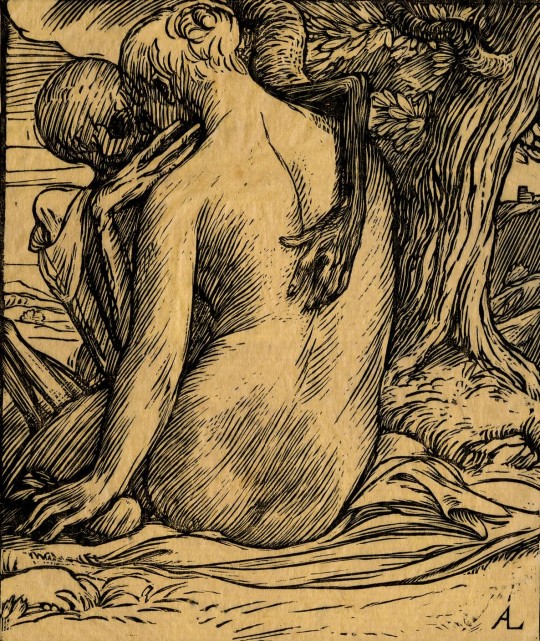
#art#engraving#drawing#french school#sepia#fine art#alphonse legros#death and the maiden#der tod und das mädchen#skeleton
1K notes
·
View notes
Text








Joseph Quinn - Je t'aime aussi.
#joseph quinn#he'll be the death to us all#manspread#hands#speaking french#come ON#yellow socks#everything
5K notes
·
View notes
Text
One super funny thing about the French Rev (that Victor Hugo even references in Les Mis) is the way it altered naming conventions, resulting in tons of WILD amazing ridiculous names!
Basically what happened was— during the French Rev the laws around registering names were relaxed, so people started giving extremely revolutionary names to themselves and their babies.
Sadly Napoleon’s government later cracked down on this. When Napoleon came into power he passed a restrictive law mandating that people had to choose among a list of “normal” names, banning the weird revolution ones, because he was a spineless coward afraid of the power these names had. The restrictive naming laws weren’t repealed until late in the 20th century.
But anyway here are some of my favorite French Rev baby names (taken from this list):
Mort Aux Aristocrates -“Death to Aristocrats”
Amour Sacré de la Patrie l’an Trois -“Sacred Love of the Fatherland Year III”
Lagrenade —“The Grenade”
Droit de l’Homme Tricolor “Right of Man Tricolor”
Égalité — “Equality”
Régénérée Vigueur— “Regenerated Strength”
Marat, ami du peuple -“Marat, friend of the people”
Marat, défenseur de la Patrie—“Marat, defender of the Fatherland”
La Loi-“The Law”
Philippe Thomas Ve de bon coeur pour la République — “Philippe Thomas ‘Go with a good heart for the Republic’”
Raison —“Reason”
Simon Liberté ou la Mort —“Simon “Freedom or Death””
Citoyen Français—“French Citizen”
Sans Crainte— “Without Fear”
Unitée Impérissable— “Imperishable Unity”
Victoire Fédérative— “Federal Victory”
Vengeur Constant —“Constant Avenger”
#les mis#les mis letters#French Revolution#lm 1.4.3#here is my son Death to Aristocrats#and his sister The Grenade
5K notes
·
View notes
Text

Georges Bataille, Erotism: Death and Sensuality
#georges bataille#erotism: death and sensuality#literature#bibliophile#upload#quotes#literary#french literature#eroticism#death#on death
2K notes
·
View notes
Text
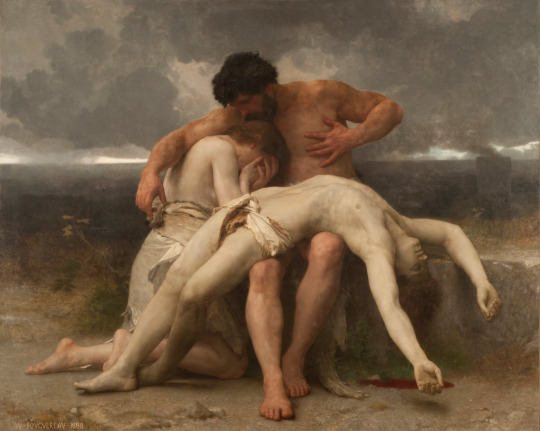
William Adolphe Bouguereau (French, 1825-1905)
The First Mourning, 1888
Museo Nacional de Bellas Artes, Buenos Aires
#adam and even#the death of abel#William Adolphe Bouguereau#The First Mourning#art#fine art#european art#classical art#europe#european#1800s#oil painting#fine arts#europa#mediterranean#Premier Deuil#french art#france#bouguereau#Premier Deuil 1888#christentum#christianity#christian#christian art#catholic
688 notes
·
View notes
Text
it was so funny when ed was like "no don't kill ned, stede, it'll change you forever" like babygirl last season he set an entire ship and its occupants on fire for you and you loved it. what are you talking about
#the whole idea of killing in this show is not consistent at all and tbh that's the biggest thing about it that bugs me#i wouldn't count the french or british as people either but like. they are killing them!#ofmd#our flag means death#ofmd s2#ofmd s2 spoilers#stede bonnet#ed teach#gentlebeard
731 notes
·
View notes
Text
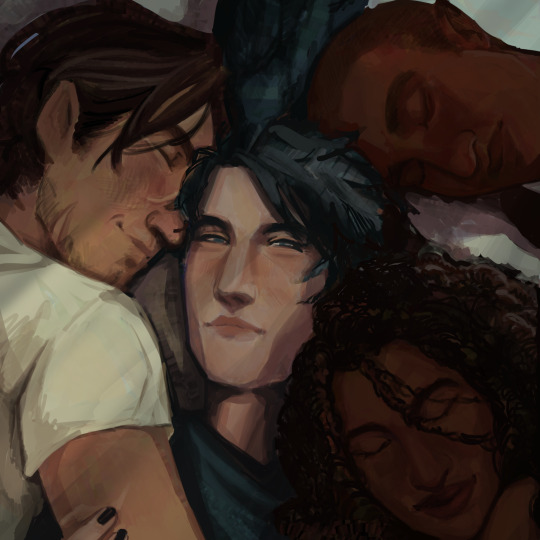
sleepover
inspired by this post!
#my art#sandman#the sandman#dream of the endless#morpheus sandman#morpheus#hob gadling#death of the endless#lucienne sandman#matthew sandman#dreamling#dreamhob#FINALLY RENEWED LETS FUCKIBG GOOOOOOOOOOO#my other option of a title for this one was friends#dream’s friends in season 1 KSNFKSKDKS#also my excuse to draw all my favs <3#i LOVE all of them kiss kiss kiss#anyway!!!!!#i did this sketch weeks ago in my french notebook but just really did it today lol
4K notes
·
View notes
Text
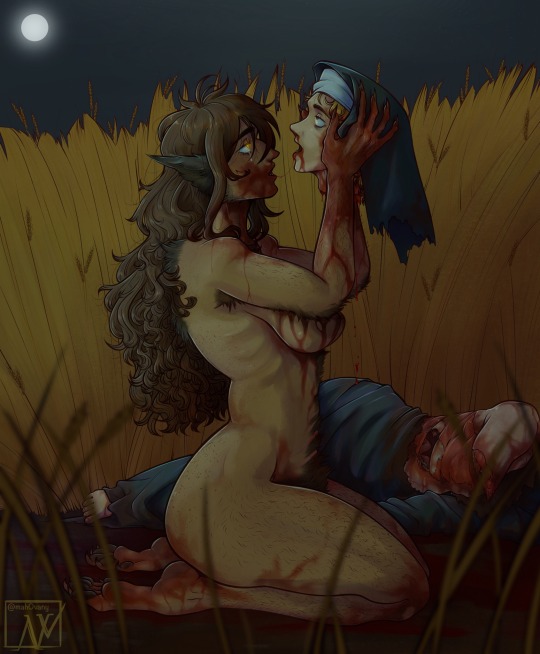
"And she had brown eyes like a lamb, innocent and golden"

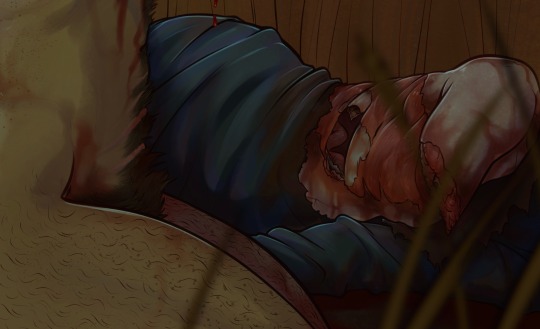
#when the Yuri so unhealthy one of them eats the other#symbolism galore#hellsing oc#my oc#laura chastel#my art#OOOH boy let's go with the content warnings#cw gore#cw guro#cw nudity#artistic nudity#cw blood#cw death#cw cannibalism#cw decapitated head#cw decapitation#cw dismemberment#this is the woman that Laura loved (was it love? she had no idea) before Integra#I'll try to give more info on her. the idea came recently and I thought it could be cool#yes another nun. in my defense this one became one AFTER they met#it's just how catholic French villagers are ig. idk I don't really hang out with them#this piece beat my ass black and blue#i have no idea how to render#please be patient i have autism#and I'm a bit unsure about this piece. presenting it to you with an awkward hand
211 notes
·
View notes
Text


La mort trouble (1970), dir. Férid Boughedir & Claude d’Anna
449 notes
·
View notes
Text
She is death [...]
with hands full of fire.
— Gérard de Nerval, “Artemis”
158 notes
·
View notes
Text

Illustration from Edgar Allan Poe's The Raven by Gustave Doré (1884)
#gustave doré#art#illustration#golden age of illustration#19th century#19th century art#vintage art#vintage illustration#vintage#french art#french artist#books#book illustration#edgar allan poe#horror#the raven#death#grim reaper#classic art
664 notes
·
View notes
Text

699 notes
·
View notes
Text
In 1825, well after Haitians won their independence, the french levied five 30 million franc payments over the course of 5 years as a debt due to their independence. The total annaul economic output of Haiti was only 6 million francs. Why did they legy such harsh debts? To fover lost property. What lost property? The land? Yes. The buildings? Yes. But most importantly, the (now former) slaves themselves.
Not only did the french not pay the Haitians for their centuries of crimes against humanity and torture against them, the french demanded a debt simply because the Haitians freed themselves.
Haiti paid off a debt which they should not have owed over a century after they were levied; in the 1950s.
225 notes
·
View notes
Text
A little old Our Flag Means Death meta for you since we STILL DON’T HAVE A RELEASE DATE ! DAVID ! (in alexis’ voice)
I’ve been rethinking about the importance of names and how they address each other in the show since I watched the French dubbing (a way to see the show yet another time but with little differences) and what I found very interesting is the fact that Stede and Ed are both using « vous » with each other : a sort of polite/stiff/formal « you » used amongst people who respect a certain hierarchy/elder/professors etc or that you don’t know enough to use the « tu » : the more intimate or familiar « you ». For example ed uses « tu » with everyone (including Izzy) because within his class, it would have been strange otherwise, except towards superiors in ranks or unfortunately higher class like his mom with her boss probably. Well everyone, except Stede.
On the contrary, Stede uses « tu » with no one except his crew (and yes that includes his wife and children) for the same reasons Edward uses the opposite : his higher class. What transpires between them with this choice is a deep respect even when they are joking with each other…
That is until a certain scene where Ed is saying : Ce qui me rend heureux c’est…toi. = What makes me happy is.. you (you guessed it not vous but tu).
And Stede of course replies :
Tu me rends heureux également. (You make me happy as well).
they proceed to use the tutoiement (using tu) for the rest of their dialogue which adds a very profound intimacy between them, even more so than the kiss, because a barrier has been lifted. What is heart wrenching is that when Stede is asking the petrified orange « how was your day, Edward? », in french he’s reverting to the « vous », indicating either that he knows he lost the privilege of addressing Edward with the closeness they finally achieved or that Ed’s too far away (in distance and emotion) and became a myth again, almost a figment of his imagination, more than a real man/friend/lover.
Anyway food for thought.
797 notes
·
View notes
Text

Henri-Guillaume Schlesinger (1814-1893)
"Girl with Dead Bird" (1890)
Located in the Kunsthistorisches Museum, Vienna, Austria
#paintings#art#artwork#genre painting#female portrait#henri guillaume schlesinger#fine art#museum#art gallery#french artist#portrait of a woman#clothing#clothes#death#dead animal#birds#upset#sad#sadness#despair#melancholy#melancholic#side profile#braided hair#braids#1890s#late 1800s#late 19th century
204 notes
·
View notes